
- print archive
- digital archive
- book review
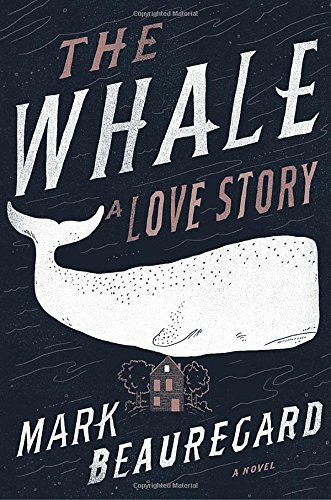

[types field='book-title'][/types] [types field='book-author'][/types]
Viking, 2016
Contributor Bio
More online by erik hage.
- Small Things Like These
- First Person Singular
- Chances Are . . .
The Whale: A Love Story
By mark beauregard, reviewed by erik hage.
Of all of the notable literary friendships, the bond between Herman Melville and Nathaniel Hawthorne seems among the most fascinating—largely because of Melville’s emotionally charged letters to the older writer, and also because the relationship became a crucible for the composition of Moby-Dick . In fact, Melville dedicated the 1851 novel to Hawthorne, in “admiration for his genius,” leaving no doubt about Hawthorne’s influence on the book’s eventual shape and scope. Many have also speculated that there was a romantic element to the relationship, and—speculation being the idiom of the historical novel—this is what propels Mark Beauregard’s The Whale: A Love Story .
Melville met Hawthorne in August 1850, a few months into the composition of the whale book. Hawthorne, having recently published The Scarlet Letter , had resettled his family in a small cottage in Lenox, Massachusetts. Melville soon relocated his own small family from New York City to a farmhouse dubbed “Arrowhead” in Pittsfield. With merely six miles between them, the 31-year-old Melville and the 46-year-old Hawthorne struck up a brief and intense friendship. Hawthorne’s letters to Melville have been lost, so we have only Melville’s missives: soaring prose performances full of adoration and lofty allusions.
Melville was at a febrile and expansive period in his development, having dashed out five books in the four years prior to starting Moby-Dick . An autodidact with very little schooling, he “swam through libraries and sailed through oceans,” soaking up sea experiences and books in equal measure. Hawthorne—both the man and his works—jolted something in Melville, who, right after the meeting, published a rapturous and suggestive essay, “Hawthorne and His Mosses,” about the older writer’s talent.
This is rich terrain for a novelist, and Beauregard has diligently steeped himself in source material. With scholarly precision, he assembles a world and constellation of characters out of painstaking and minute details. He even fills in blank space by rendering Hawthorne’s letters to Melville out of wholly imaginary cloth. Beauregard’s prose is at its steadiest when evoking the still and luminous flashes of Melville’s sequestered writing life. For example, the initial snowflakes from the season’s first storm outside his study evoke “the mystery of all life, in the transformations of water, the vast roaring swells of ocean … fluttering in crystalline loneliness.” Readers of Moby-Dick will recognize the adaptation of Ishmael’s meditation on water, in which he perceives “the image of the ungraspable phantom of life.”
Beauregard pieces together Melville’s inner life out of his writings, sometimes suggesting that his nonfiction praise of the older writer is redirected erotic energy. The fictionalized Melville pines for “the soft ravishments of [Hawthorne’s] beauty spun like a web of dreams,” whereas the “real” Melville, describing Hawthorne’s tales, wrote, “The soft ravishments of the man spun me round about in a web of dreams.” If the language is melodramatic, it is Melville’s own.
Assembling Melville’s personality out of the multifaceted, complex writings that he left behind is a Herculean task, and Beauregard is focusing, as his title indicates, on a love story. But this one-note Melville, the pining lover too distracted to work, is at times weighed down by purple tones and melodrama of Beauregard’s own making. While reading Hawthorne, for example, he “felt the man’s words bathing his soul.” At another moment, the “Sirens were singing celestial odes of Hawthorne in Herman’s ears, piercingly beautiful songs beckoning him to Lenox.” Our first glimpse of Hawthorne beholds “eyebrows that prettily framed his coffee brown eyes … sensuous red lips, the bottom lip a wide devouring flare; and waving chestnut hair that fell in ringlets behind his ears.” Elsewhere, a would-be seductress “grabbed two handfuls of Herman’s beard and pulled his lips to hers in a hard, dry kiss.” (Departing, she purrs, “Let me be your island girl in the Berkshires.”)
If these stagy flourishes occasionally weigh down and stiffen the novel, it remains bright in structure: the author shows a deft hand in unifying a compelling plot line with primary source material (Beauregard details his research in an epilogue). There is a great tradition of fictionalized literary biography, and though this work doesn’t hit the heights of, for example, Colm Tóibín’s adroit novel The Master (2004), which subtly yet evocatively rendered Henry James’s inner life as well as the emotional claustrophobia of his closeted sexuality, The Whale ’s verisimilitude is admirable.
Published on September 13, 2016
Like what you've read? Share it!
Find anything you save across the site in your account
Brendan Fraser’s Soft Quizzicality in “The Whale”
By Anthony Lane

Few actors have done more to promote the power of innocence than Brendan Fraser. Go back to the first wave of his fame, and to the gag that ran through his drollest roles. In “Encino Man” (1992), he was an early human, frozen solid during an ice age, defrosted by high-school kids, and invited to party down. In “George of the Jungle” (1997), he was a Tarzanesque vine-swinger let loose in San Francisco. And, in the charming “Blast from the Past” (1999), he was born in a nuclear bunker, raised on pure Americana, and eager, when he emerged after thirty-five years, to marry somebody from Pasadena. In each case, California was held up as the acme of civilization, and Fraser as a figure who knew almost nothing, bore no ill will, and was ready to be happily surprised. Get a load of those peepers, primed to pop! And that cartoon grin! When the meek are built like Johnny Weissmuller, it seems a little easier to believe that they might yet inherit the Earth.
Fraser then swung out of orbit, and partially faded from public view. If you missed him in the confusingly titled “The Mummy: Tomb of the Dragon Emperor” (2008), or in “The Poison Rose” (2019), where he was billed below John Travolta and Morgan Freeman, don’t feel too bad. Now, though, Fraser is back, looming large in “The Whale.” He plays Charlie, who lives on his own and teaches literature classes online, explaining to his students, who can’t see him, that the camera on his computer is broken. This is untrue. Charlie doesn’t want to be seen, because his mind, however nimble, is housed in a body so gravely obese—the actor is robed in prosthetic fat—that a simple trip to the bathroom becomes an odyssey. Only when he eats does Charlie move fast, rootling through a drawer in search of chocolate bars, as busy as a jewel thief, or ripping slices from a pizza and hurrying them into his pie hole.
“The Whale” is directed by Darren Aronofsky and written by Samuel D. Hunter, who has adapted his play of the same name. Most of the action is set in two or three rooms, and Aronofsky strives to dispel any air of the theatrical; near the start, we are taken on a guided tour of Charlie, circling around him like travellers marvelling at a mountain, and there are times when his bulging features, in closeup, all but congest the screen. No playgoer would be granted such intimate privilege. What stymies the film, though, is not so much the confined space in which it unfolds—Hitchcock made do with less in “Rope” (1948) and “Rear Window” (1955)—as the stagy clunk with which other characters enter and exit that space. I half expected Charlie to exclaim, “Goodness gracious! Who could that be, at this hour?” as we hear a knock on the door.
One visitor is Charlie’s good friend Liz (Hong Chau), who is also a nurse, and makes no bones about the fate of his flesh. Who else would take his blood pressure, announce that he will soon die of heart failure, and bring him a sub to gorge on? Then, we have a young missionary, Thomas (Ty Simpkins), who drops in at random, asks Charlie, “Are you aware of the Gospel of Jesus Christ?,” and winds up smoking weed. More challenging is the arrival of Charlie’s daughter, Ellie (Sadie Sink), and later of his ex-wife, Mary (Samantha Morton). Both were estranged from him for years, after he fell in love with a man, but they now show up and embroil Charlie in highly wrought conversation. “You’re disgusting,” Ellie tells him, but he offers to help her with an essay for school, and her anger slowly melts. Could it be that Charlie, alone in his vastness, is valued after all?
“The Whale” is laughably earnest, larded with melodrama, and designed to shut down the long-standing association of human bulk with high spirits. Forget the tumid wit of Falstaff—“that huge bombard of sack, that stuffed cloak-bag of guts,” as Prince Hal calls him—or the sinister bonhomie of Sydney Greenstreet. The film presents us with obesity as tragedy, and as a preventable scourge inflicted on the hero by a hostile and traumatizing world. (The villain, needless to say, is evangelical Christianity.) Here, in short, is a self-regarding drama of self-loathing: hardly the most appetizing prospect. If it proves nonetheless to be stirringly watchable, we have Brendan Fraser to thank. Returning to the spotlight, he continues to radiate an essential sweetness of nature. His line readings have lost none of their soft quizzicality, and he even ventures a giggle; as Charlie, so often does he apologize that I began to suspect him of being secretly British. Inside the whale is a still small voice of calm.
How does the story of Pinocchio begin? For Carlo Collodi, whose tales of the wooden child were published as a book in 1883, everything kicked off with violence—with a log moaning in fear at being struck by carpenter’s tools, and with two old men fighting over it. Walt Disney, in 1940, plumped for coziness: the carolling cricket, and the mock-alpine fantasy of Geppetto’s shop, its peace broken only by ticking clocks. In the latest retelling, officially titled “Guillermo del Toro’s Pinocchio,” the tone of choice is pathos. We first meet Geppetto as he mourns a real boy: his son, Carlo, whom he cherished and lost. Pinocchio, in other words, fashioned in a drunken fit, is a replacement .
It’s a hell of a suggestion, and it accounts for the emotional thrust of what ensues. This Pinocchio will behave, throughout his exploits, as if he had plenty to prove and nothing much to lose, like someone who knows he was merely half wanted to start with. His basic locomotion is a kick-and-hop, and that reckless onward rush is an ideal match for the animation that drives the film along. The technique is that of stop-motion, and the effect is far smoother than it was in the old Ray Harryhausen epics—though the jerkiness of the stop-motion skeletons, in “Jason and the Argonauts” (1963), made them more spooky, not less—but there remains a welcome smack of the homemade, gnarly and sticklike. This is the kind of movie that Geppetto would create in his dreams.
Parts of the narrative will seem familiar, especially to anyone weaned on Disney. Once again, Pinocchio (voiced by Gregory Mann) is lured away from Geppetto (David Bradley) and recruited into the circus by a vulpine rogue (Christoph Waltz). There is still a cricket in the offing, but his name is Sebastian (Ewan McGregor), not Jiminy, and there’s a cruel farce in the way he keeps getting knocked about and smashed. This remorselessness, and the characters’ ability to rise again after meeting the blows of fate, reach a very strange apogee in Pinocchio’s regular deaths. Time after time, he finds himself in a darkling underworld, where rabbits act as pallbearers, and where a glowing blue sphinx (Tilda Swinton), tricked out with buffalo horns and a lashing tail, lectures him on eternity and grief. Whereupon the boy bounces back to life: a rubber soul within a frame of wood.
How to respond to this? Well, readers of Collodi will warm to the blend of fatalism and hope—“When the dead cry, it means they’re on the way to recovering,” as a crow says in the book. And parents will ask themselves if it was quite such a good idea to drag their youngest offspring to the new movie, and what the chances will be, come evening, of getting them to sleep. (It’s certainly more of a nightmare than “Nightmare Alley,” del Toro’s previous work, released last year.) Oh, and be warned: the film takes place during the upsurge of Fascism, and provides a withering cameo for Mussolini, who is taunted by Pinocchio with poop jokes. So, if you are taking the kids, you’ll obviously need to fill them in on twentieth-century Italian political history while you’re lining up for Cherry Vanilla Cokes. No pressure.
To be honest, del Toro has thrown too much into the mix. For no compelling reason, for instance, and to unresounding effect, the movie also happens to be a musical. Imaginative overflow, however, is always more appealing than a dearth, and though the rounded beauty of Disney’s draftsmanship—remember the cathedral-like cavern of the whale’s interior—can never be erased, the angularity of this latest attempt has a piercing punch of its own. Nowhere more so than when Pinocchio, standing in the nave of a church, stares up at a Crucifixion. Like him, it has been carved by Geppetto, and, in honor of that affinity, Pinocchio suddenly cricks and skews himself to mimic the posture of Jesus in his agony. It’s an astonishing moment, undoubtedly blasphemous, yet touched with more wonder than derision. Suffer little children, even the ones made of pine.
Precisely how much Netflix paid, last year, to acquire the Roald Dahl estate is unconfirmed. Low estimates murmur of six hundred million dollars. In the wake of that transaction comes “Matilda the Musical”—a new movie, directed by Matthew Warchus, jammed with larky songs by Tim Minchin, and based on the show that was based on a novel by Dahl. And how deliciously uncomfortable it is, may I say, to observe Mrs. Wormwood (Andrea Riseborough), the heroine’s mother, testifying to her tackiness by waving wads of cash and crying, “Money! Money!” Ugh. Horrible stuff.
If Geppetto was alarmed by the advent of Pinocchio, Mrs. Wormwood and her husband (Stephen Graham) are appalled by their daughter’s birth. Nobody wished for her upon a star. As a young girl (Alisha Weir), she is loathed by her parents, not least for her literacy; following Dahl’s cue, the film is an ode to the bliss of reading (“like a holiday in your head,” Matilda says), which unchains you and renders you dangerous to tyrants. Hitherto self-educated, Matilda goes to school at Crunchem Hall, where she stands out as a freethinker, to the delight of her teacher, Miss Honey (Lashana Lynch), and the thunderous annoyance of the headmistress, Miss Trunchbull (Emma Thompson). A former hammer thrower, Miss Trunchbull now contents herself with tossing her pupils into an adjacent field.
Like “Pinocchio,” the saga of Matilda goes where “The Whale” fears to tread, into the murky and Dickensian comedy of abuse. Miss Trunchbull is descended from other principals whose names smell of torture, like Thomas Gradgrind, in “Hard Times,” or Wackford Squeers, in “Nicholas Nickleby”—the first book that Matilda mentions, in the film, when asked what she’s been reading of late. Of all the beneficiaries of Dickens, none have been more influential than Disney and Dahl. Both deal in the heartfelt popular grotesque; turpitude spawns moral and physical gargoyles, whom the virtuous (preferably not simpering but impish, like Matilda) must learn to trounce. It seems fitting, then, that the best thing about Warchus’s film should be the energy of the children. Confidently led by Weir, they swarm the screen. Picking up where the urchins of “Oliver!” (1968) left off, they hymn their climactic liberation with an anthem that binds the messy to the insurgent, glorying in the most Dahlian of all words: “We’re Revolting!” ♦
New Yorker Favorites
The day the dinosaurs died .
What if you started itching— and couldn’t stop ?
How a notorious gangster was exposed by his own sister .
Woodstock was overrated .
Diana Nyad’s hundred-and-eleven-mile swim .
Photo Booth: Deana Lawson’s hyper-staged portraits of Black love .
Fiction by Roald Dahl: “The Landlady”
Sign up for our daily newsletter to receive the best stories from The New Yorker .

By signing up, you agree to our User Agreement and Privacy Policy & Cookie Statement . This site is protected by reCAPTCHA and the Google Privacy Policy and Terms of Service apply.

By Helen Shaw

By Patricia Marx

By Andrew Marantz

By Naomi Fry
- Work & Careers
- Life & Arts
Become an FT subscriber
Try unlimited access Only $1 for 4 weeks
Then $75 per month. Complete digital access to quality FT journalism on any device. Cancel anytime during your trial.
- Global news & analysis
- Expert opinion
- Special features
- FirstFT newsletter
- Videos & Podcasts
- Android & iOS app
- FT Edit app
- 10 gift articles per month
Explore more offers.
Standard digital.
- FT Digital Edition
Premium Digital
Print + premium digital, weekend print + standard digital, weekend print + premium digital.
Essential digital access to quality FT journalism on any device. Pay a year upfront and save 20%.
- Global news & analysis
- Exclusive FT analysis
- FT App on Android & iOS
- FirstFT: the day's biggest stories
- 20+ curated newsletters
- Follow topics & set alerts with myFT
- FT Videos & Podcasts
- 20 monthly gift articles to share
- Lex: FT's flagship investment column
- 15+ Premium newsletters by leading experts
- FT Digital Edition: our digitised print edition
- Weekday Print Edition
- Videos & Podcasts
- Premium newsletters
- 10 additional gift articles per month
- FT Weekend Print delivery
- Everything in Standard Digital
- Everything in Premium Digital
Complete digital access to quality FT journalism with expert analysis from industry leaders. Pay a year upfront and save 20%.
- 10 monthly gift articles to share
- Everything in Print
Terms & Conditions apply
Explore our full range of subscriptions.
Why the ft.
See why over a million readers pay to read the Financial Times.
International Edition
Movie Reviews
Tv/streaming, collections, great movies, chaz's journal, contributors.

Now streaming on:
"The Whale" is an abhorrent film, but it also features excellent performances.
It gawks at the grotesquerie of its central figure beneath the guise of sentimentality, but it also offers sharp exchanges between its characters that ring with bracing honesty.
It's the kind of film you should probably see if only to have an informed, thoughtful discussion about it, but it's also one you probably won't want to watch.
This aligns it with Darren Aronofsky's movies in general, which can often be a challenging sit. The director is notorious for putting his actors (and his audiences) through the wringer, whether it's Jennifer Connolly's drug addict in " Requiem for a Dream ," Mickey Rourke's aging athlete in " The Wrestler ," Natalie Portman's obsessed ballerina in " Black Swan ," or Jennifer Lawrence's besieged wife in "mother!" (For the record, I'm a fan of Aronofsky's work in general.)
But the difference between those films and "The Whale" is their intent, whether it's the splendor of their artistry or the thrill of their provocation. There's a verve to those movies, an unpredictability, an undeniable daring, and a virtuoso style. They feature images you've likely never seen before or since, but they'll undoubtedly stay with you afterward.
"The Whale" may initially feel gentler, but its main point seems to be sticking the camera in front of Brendan Fraser , encased in a fat suit that makes him appear to weigh 600 pounds, and asking us to wallow in his deterioration. In theory, we are meant to pity him or at least find sympathy for his physical and psychological plight by the film's conclusion. But in reality, the overall vibe is one of morbid fascination for this mountain of a man. Here he is, knocking over an end table as he struggles to get up from the couch; there he is, cramming candy bars in his mouth as he Googles "congestive heart failure." We can tsk-tsk all we like between our mouthfuls of popcorn and Junior Mints while watching Fraser's Charlie gobble greasy fried chicken straight from the bucket or inhale a giant meatball sub with such alacrity that he nearly chokes to death. The message "The Whale" sends us home with seems to be: Thank God that's not us.
In working from Samuel D. Hunter's script, based on Hunter's stage play, Aronofsky doesn't appear to be as interested in understanding these impulses and indulgences as much as pointing and staring at them. His depiction of Charlie's isolation within his squalid Idaho apartment includes a scene of him masturbating to gay porn with such gusto that he almost has a heart attack, a moment made of equal parts shock value and shame. But then, in a jarring shift, the tone eventually turns maudlin with Charlie's increasing martyrdom.
Within the extremes of this approach, Fraser brings more warmth and humanity to the role than he's afforded on the page. We hear his voice first; Charlie is a college writing professor who teaches his students online from behind the safety of a black square. And it's such a welcoming and resonant sound, full of decency and humor. Fraser's been away for a while, but his contradictions have always made him an engaging screen presence—the contrast of his imposing physique and playful spirit. He does so much with his eyes here to give us a glimpse into Charlie's sweet but tortured soul, and the subtlety he's able to convey goes a long way toward making "The Whale" tolerable.
But he's also saddled with a screenplay that spells out every emotion in ways that are so clunky as to be groan-inducing. At Charlie's most desperate, panicky moments, he soothes himself by reading or reciting a student's beloved essay on Moby Dick , which—in part—gives the film its title and will take on increasing significance. He describes the elusive white whale of Herman Melville's novel as he stands up, shirtless, and lumbers across the living room, down the hall, and toward the bedroom with a walker. At this moment, you're meant to marvel at the elaborate makeup and prosthetic work on display; you're more likely to roll your eyes at the writing.
"He thinks his life will be better if he can just kill this whale, but in reality, it won't help him at all," he intones in a painfully obvious bit of symbolism. "This book made me think about my own life," he adds as if we couldn't figure that out for ourselves.
A few visitors interrupt the loneliness of his days, chiefly Hong Chau as his nurse and longtime friend, Liz. She's deeply caring but also no-nonsense, providing a crucial spark to these otherwise dour proceedings. Aronofsky's longtime cinematographer, the brilliant Matthew Libatique , has lit Charlie's apartment in such a relentlessly dark and dim fashion to signify his sorrow that it's oppressive. Once you realize the entirety of the film will take place within these cramped confines, it sends a shiver of dread. And the choice to tell this story in the boxy, 1.33 aspect ratio further heightens its sense of dour claustrophobia.
But then "Stranger Things" star Sadie Sink arrives as Charlie's rebellious, estranged daughter, Ellie; her mom was married to Charlie before he came out as a gay man. While their first meeting in many years is laden with exposition about the pain and awkwardness of their time apart, the two eventually settle into an interesting, prickly rapport. Sink brings immediacy and accessibility to the role of the sullen but bright teenager, and her presence, like Chau's, improves "The Whale" considerably. Her casting is also spot-on in her resemblance to Fraser, especially in her expressive eyes.
The arrival of yet another visitor—an earnest, insistent church missionary played by Ty Simpkins —feels like a total contrivance, however. Allowing him inside the apartment repeatedly makes zero sense, even within the context that Charlie believes he's dying and wants to make amends. He even says to this sweet young man: "I'm not interested in being saved." And yet, the exchanges between Sink and Simpkins provide some much-needed life and emotional truth. The subplot about their unlikely friendship feels like something from a totally different movie and a much more interesting one.
Instead, Aronofsky insists on veering between cruelty and melodrama, with Fraser stuck in the middle, a curiosity on display.
Now playing in theaters.

Christy Lemire
Christy Lemire is a longtime film critic who has written for RogerEbert.com since 2013. Before that, she was the film critic for The Associated Press for nearly 15 years and co-hosted the public television series "Ebert Presents At the Movies" opposite Ignatiy Vishnevetsky, with Roger Ebert serving as managing editor. Read her answers to our Movie Love Questionnaire here .
Now playing

Brian Tallerico

Blood for Dust
Matt zoller seitz.

Force of Nature: The Dry 2
Sheila o'malley.

A Bit of Light
Peyton robinson.

Art College 1994
Simon abrams, film credits.

The Whale (2022)
Rated R for language, some drug use and sexual content.
117 minutes
Brendan Fraser as Charlie
Sadie Sink as Ellie
Hong Chau as Liz
Ty Simpkins as Thomas
Samantha Morton as Mary
Sathya Sridharan as Dan
- Darren Aronofsky
Writer (based on the play by)
- Samuel D. Hunter
Cinematographer
- Matthew Libatique
- Andrew Weisblum
- Rob Simonsen
Latest blog posts

The 10 Most Anticipated Films of Cannes 2024

The Importance of Connections in Ryusuke Hamaguchi Films

Saving Film History One Frame at a Time: A Preview of Restored & Rediscovered Series at the Jacob Burns Film Center

The Beatles Were Never More Human Than in ‘Let It Be’
The Definitive Voice of Entertainment News
Subscribe for full access to The Hollywood Reporter
site categories
‘the whale’ review: brendan fraser is heart-wrenching in darren aronofsky’s portrait of regret and deliverance.
Sadie Sink, Hong Chau, Ty Simpkins and Samantha Morton also appear in this chamber drama adapted by Samuel D. Hunter from his play about grief and salvation.
By David Rooney
David Rooney
Chief Film Critic
- Share this article on Facebook
- Share this article on Twitter
- Share this article on Flipboard
- Share this article on Email
- Show additional share options
- Share this article on Linkedin
- Share this article on Pinit
- Share this article on Reddit
- Share this article on Tumblr
- Share this article on Whatsapp
- Share this article on Print
- Share this article on Comment

Related Stories
'the mummy' at 25: director on the enduring hit, brendan fraser's mishap and the tom cruise reboot, alberto barbera extends contract as venice film festival director through 2026.
With its airless single setting and main character whose dire health crisis makes the ticking clock on his life apparent from the start, The Whale seemed a tricky prospect for screen transfer. Aronofsky succeeds not by artificially opening up the piece but by leaning into its theatricality, immersing us in the claustrophobia that has become inescapable for Fraser’s character, Charlie. The scene structure of a focal character confined to a few rooms while secondary characters come and go, at times overlapping, remains very much that of a play.
Shooting in the snug 1.33 aspect ratio might seem to box us in even more, and the shortage of light seeping in from outside Charlie’s apartment is perhaps a tad symbolically heavy-handed. But DP Matthew Libatique’s spry camera and Andrew Weisblum’s dynamic editing bring surprising movement to the static situation. The one significant questionable choice is the overkill of Rob Simonsen’s emotionally emphatic score, rather than trusting the actors to do that work.
Aronofsky and Hunter startle the audience early on, not just by exposing Charlie’s severe obesity — Fraser wears a mix of latex suit plus digital prosthetics designed by Adrien Morot — but by revealing this mountain of a man to be still capable of sexual desire. Charlie keeps the camera off during the online writing course he teaches, claiming that the webcam on his laptop is broken. But its video component functions just fine when moments later he’s watching gay porn and furiously masturbating.
Charlie’s crisis is averted by the arrival of his health care worker friend Liz ( Hong Chau , wonderful), who is used to dealing with his emergencies. She tells him his congestive heart failure and sky-high blood pressure mean he’ll likely be dead within a week. Exasperated at his continuing refusal to go to a hospital, ostensibly due to lack of health insurance, Liz is often impatient and angry with Charlie. But her love for him is such that she reluctantly indulges his fast-food addiction, bringing him buckets of fried chicken and meatball subs.
Grief is the ailment that unites Charlie and sharp-tongued Liz, also making her ferocious with the persistently present Thomas. Her adoptive father is a senior council member at New Life, and she blames the death of her brother Alan on the church. Alan was a former student of Charlie’s who became the love of his life but could never get over his father’s condemnation, developing a chronic eating disorder that eventually killed him.
The tidy symmetry of one partner starving himself to death and the other’s self-destruction happening through gluttony is a little schematic, just as the Moby Dick elements are a literary flourish that shows the writer’s hand. But Hunter’s script and the intimacy of the actors’ work keep the melancholy drama grounded and credible.
The teenager’s spiky confrontations with her gentle giant of a father are matched by her needling exchanges with Thomas, whom she manipulates the same way she does Charlie and her hard-bitten mother. Sink (a Stranger Things regular) doesn’t hold back in a characterization that justifies Mary’s description of her as “evil.” But the residual love beneath both women’s screechy outbursts and hurt distance is slowly revealed in some genuinely moving moments, notably as Charlie reminisces with Mary about a family trip to Oregon when he was much less heavy, the last time he went swimming.
Every member of the small ensemble makes an impression, even the mostly unseen Sathya Sridharan as a friendly pizza delivery guy who never fails to ask about Charlie’s welfare from behind the closed apartment door.
The standout, alongside Fraser, is Chau, following her slyly funny work in Kelly Reichardt’s Showing Up with a nuanced turn as a woman knocked sideways by loss and bracing for another devastating hit of it. In both cases, her inability to intervene has left her helpless, enraged, exhausted and in visible pain. There’s also humor in Liz’s annoyance with Charlie’s innate positivity, which endures no matter how bad his circumstances become. In a movie that’s partly about the human instinct to care for other people, Chau breaks your heart.
His physicality, straining to navigate awkward spaces and maneuver a body that requires more strength than Charlie has left, is distressing to witness, as are his fits of coughing, choking, gasping for breath. On the few occasions where he struggles to stand to his full height, he fills the frame, a figure of tremendous pathos less because of his size than his suffering. But in a film about salvation, it’s the inextinguishable humanity of Fraser’s performance that floors you.
Full credits
Thr newsletters.
Sign up for THR news straight to your inbox every day

More from The Hollywood Reporter
Mark damon, actor turned indie film exec and ‘monster’ producer, dies at 91, ron howard, john carpenter and more pay tribute to roger corman: “profound loss to cinema”, cannes workers turn pre-fest meet into strike rally, box office: ‘kingdom of the planet of the apes’ shows heat with $56.5m u.s. opening, $129m globally, susan backlinie, the first victim of the shark in ‘jaws,’ dies at 77 , roger corman, giant of independent filmmaking, dies at 98.
- Search Please fill out this field.
- Newsletters
- Sweepstakes
- Movie Reviews
The Whale review: Brendan Fraser shines in a overwrought, underbaked drama
The actor is better than director Darren Aronfosky's stagey adaptation.
:max_bytes(150000):strip_icc():format(webp)/image001-1-96bff255cc7d4c8da59d9d4192867e86.jpg)
In every awards season, there are certain movies whose heat index seems to rise almost solely because of a central performance: actors so indelible in the part they transcend the flaws and missteps of the film formed around them. (Renée Zellweger in Judy was one a few years ago, or Rami Malek in Bohemian Rhapsody ; both won Oscars.) Brendan Fraser 's astonishing turn in The Whale often feels like that to the n th degree: a tender, modest, and momentously human piece of work plonked in the midst of a drama so masochistically stilted and stagey it often feels less like a movie than an endurance test, or even worse, a parody.
The staginess, to be fair, is at least partly because it was in fact a play, one that director Darren Aronofsky spent the last decade trying to bring to the screen (the playwright, Samuel D. Hunter, also penned the adaptation). Why the man who helmed Black Swan , The Wrestler , and Requiem for a Dream would find a bleak psychological drama about deeply broken people appealing is not a mystery; what he found irresistible here though, is less easy to see. Fraser's Charlie, in the opening scene, is just a voice inside a black Zoom screen. That's because he teaches remotely at an online college, but his excuse of a broken laptop camera is a lie: The truth is he's morbidly obese, so large that he can't leave his shabby apartment or even stand up without a walker. He can just about manage to bathe and feed himself, but other activities (masturbation, laughing) leave him too clammy and winded to breathe.
There's a gadget for nearly every physical thing he can't do on his own — handles and pulleys in the shower, a special seat in the bathroom, even a little clawed picker-upper for whatever he might drop on the floor. And a friend named Liz ( Watchmen 's Hong Chau ) comes faithfully every day to check his vitals and bring him groceries. Liz is also a nurse, and she keeps telling him plainly that he's dying. But she's often interrupted by a knock at the door: First an earnest young missionary (Ty Simpkins) named Thomas hoping to spread the good word, and later, Ellie ( Stranger Things ' Sadie Sink), his estranged teenage daughter whose only words for him, primarily, are sneered f-bombs. Ellie, hissing and venomous, hates him because he left her mother ( Samantha Morton ) years ago for another man, but mainly she hates everything.
Aside from a single brief flashback, the action, such as it is, is confined entirely to Charlie's drab apartment and the small roundelay of guests who steadily come through to drop chunks of story exposition or settle scores. Fraser — encased in elaborate prosthetics that Aronfosky revels in shooting like a Caravaggio, all shadows and moody, milky light — welcomes them, down to the missionary kid. Charlie knows that he's killing himself and he knows why, but there's hardly any complaint or self-pity; instead he's emotionally generous almost to a fault, a man still eager to spread his love of Walt Whitman and Moby Dick and only connect, even if his efforts are met with mockery or disgust.
He and Chau, who brings a bright acidity and affection to Liz, often seem to be drawing from a different well than their castmates. But all the actors are left to mine their own layers in characters who have only the scantest backstories and broad traits: Hellish Teenager, Troubled Soul, Man Too Big to Live. Those dynamics may have played out better on stage, where a certain kind of bold underlining serves a live audience. Here it often feels clumsy and maddeningly inconsistent, stranding Fraser in a melodrama undeserving of his lovely, unshowy performance. Whatever he wins for The Whale — and early prizes have already come — he deserves. The rest is just chum. Grade: C
Related content:
- Mummy reunion! Brendan Fraser and Michelle Yeoh share a sweet hug at TIFF Tribute Awards
- Brendan Fraser says he might not take another role as deep as The Whale : 'I gave it everything'
- Lena Dunham took Andrew Scott from hot priest to 'hot medieval dad' in Catherine Called Birdy
- Brendan Fraser gets emotional over Whale awards victory, his first trophy 'since grade 4'
Related Articles
Advertisement
Supported by
Bright Young Things, Revisited: War Clouds a Childhood Idyll
Joanna Quinn’s “The Whalebone Theatre” breathlessly follows a trio of British youngsters from frolics on the beach to service and spycraft.
- Share full article

By Alexandra Jacobs

THE WHALEBONE THEATRE, by Joanna Quinn
Whales loom large not just in the ocean but in landlocked imaginations: these mysterious mammals, gentle but fearsome, threatened and threatening, almost unfathomably enormous. So like us with their warm blood and communication skills, and yet so not.
You might never have cracked Herman Melville’s “Moby-Dick” and still use the phrase “great white whale” to mean an obsessive but elusive goal. The massive model of a blue whale in the American Museum of Natural History was immortalized further by Noah Baumbach in “The Squid and the Whale.” Don’t forget Carvel’s Fudgie, the ’70s sheet cake that won’t quit . And one of the most appealing characters in Lidia Yuknavitch’s recent novel “Thrust” was the wearily maternal whale who helped out the human protagonist.
The 60-foot-long, seven-foot-tall creature that appears in Joanna Quinn’s first novel, “The Whalebone Theatre,” is, alas, D.O.A., found beached on the coast of Dorset, England, by a 12-year-old named Cristabel, with the all-too-apt surname Seagrave. She quickly pierces her discovery with a homemade flagpole fluttering with the family coat of arms and shouts, “A mighty leviathan, I have claimed it,” to amused fishermen in the vicinity.
Taking up toy weapons and disdainful of marriage plots, Cristabel is outlined in the endearing if slightly stock shape of unconventional heroine. Having wondered, “Why aren’t there interesting girls in the stories?” while being read the “Iliad” by Maudie, the kitchen maid who for a time shares her attic bedroom, she is determined, perhaps a little overdetermined, to write her own.
She and her younger half sibling, Flossie (nicknamed “the Veg” for an indelicate countenance), and cousin Digby, whom she treasures as a brother, circumvent the laws about “fishes royal” belonging to the king, and will make of the whale skeleton a giant play space: to stage actual plays, the greatest hits of Shakespeare’s catalog, with help from the bohemian adults visiting Chilcombe, the estate where they live. Quinn has said in interviews she got the idea of the skeleton set from a Kate Bush concert .
She is being eagerly interviewed because “The Whalebone Theatre,” a generous slab of historical fiction cut from the same crumbling stone as Evelyn Waugh’s “Brideshead Revisited” and Elizabeth Jane Howard’s “The Cazalet Chronicles,” is a big hit in England . Centered on imperiled aristocracy during the well-trod period of 1919-45, it’s also been compared (inevitably, and to Quinn’s dismay) to “ Downton Abbey ,” Chilcombe being almost a character in its own right. I was reminded further, at least during its delightful first third, of Dodie Smith’s cult classic “ I Capture the Castle ” and of a lesser-known work by the prolific children’s book author Noel Streatfeild , “The Growing Summer,” in which four siblings are sent to live with their eccentric aunt in Ireland.
Shimmeringly if sometimes a little preciously, Quinn depicts the strange, resourceful magic that can be conjured by a cluster of children when they’re neglected by selfish adults. Overseen by a vague French governess, they educate themselves with books stolen from the study, by eavesdropping from cloakrooms on drunken dinner parties and by running around with young “savages” they encounter scuttling naked around the shore, the progeny of Taras, a daring Russian artist.
We first meet Cristabel when she is just 3, finding the taste of snow “disappointingly nothingy.” Her mother died in childbirth and her new stepmother, Rosalind, is vain, beautiful and cold like the snow, though not evil. Her stolid father, Jasper — still mourning his late wife, who haunts the ancestral pile like a more benign Rebecca de Winter — will soon be dead as well, tumbled from a horse (of course), his dashing younger brother, Willoughby, stepping easily into his shoes.
The new couple will entertain a parade of international visitors of which Taras is the most vivid and voluble, enjoying boozy picnics by the sea and shopping expeditions — at least until it’s time to fight the Nazis. “We don’t have a choice,” Willoughby tells Rosalind, crackling his newspaper, when the doted-upon Digby enlists. “Surely they had a choice. They always had a choice,” she thinks, suspended in the recent past. “They chose extravagantly and at length. Fabrics, perfumes, tables in restaurants.”
On atmospherics, “The Whalebone Theatre” is absolute aces, to borrow the patois of the Americans who drop in for cultural contrast, new-moneyed and loud. Reading it is like plunging into a tub of clotted cream while (or whilst) enrobed in silk eau-de-Nil beach pajamas . You’ll immediately want to change your font to Garamond and start saying things like “Toodle-pip, darlings!” The weather, whether misty or stormy, dappling sunshine or “moonlight falling through the window like an invitation,” is consistently impressive.
Quinn is an energetic narrative seamstress. Into her giant tapestry she stitches in letters, lists, scrapbook entries, dramatic dialogue, Maudie’s sexually adventuresome diary entries and the occasional piece of concrete poetry. All of this is lovely and unforced.
The novel begins to veer off the rails, however, when a grown Cristabel, “sick of pushing tiddlywinks about” as a member of the Women’s Auxiliary Air Force, becomes a secret agent, wrestling down an SS officer with the sudden physical dexterity of Angelina Jolie in “Mr. and Mrs. Smith.” The theater of childhood has become, yes, the theater of war. Flossie joins the Women’s Land Army, remaining at Chilcombe, where the finances have become predictably shaky, skinny-dipping with a German prisoner of war as vegetables fill their onetime proscenium. Maudie writes of sleeping with a Black soldier who plays her Billie Holiday (“ he calls me a tall drink of water, but he is a river and I will lay myself along him ”). Like many characters, even the older principals, even the poor whale, he is just passing through.
Gorgeous and a little breathless, with luscious food scenes from beginning to end — enough cake and pudding for a thousand Carvels — “The Whalebone Theatre” could have been tighter corseted. But Quinn’s imagination and adventuresome spirit are a pleasure to behold, boding more commanding work to come.
THE WHALEBONE THEATRE | By Joanna Quinn | 576 pp. | Knopf | $29
Alexandra Jacobs is a book critic and the author of “Still Here: The Madcap, Nervy, Singular Life of Elaine Stritch.” More about Alexandra Jacobs
Explore More in Books
Want to know about the best books to read and the latest news start here..
The complicated, generous life of Paul Auster, who died on April 30 , yielded a body of work of staggering scope and variety .
“Real Americans,” a new novel by Rachel Khong , follows three generations of Chinese Americans as they all fight for self-determination in their own way .
“The Chocolate War,” published 50 years ago, became one of the most challenged books in the United States. Its author, Robert Cormier, spent years fighting attempts to ban it .
Joan Didion’s distinctive prose and sharp eye were tuned to an outsider’s frequency, telling us about ourselves in essays that are almost reflexively skeptical. Here are her essential works .
Each week, top authors and critics join the Book Review’s podcast to talk about the latest news in the literary world. Listen here .
Screen Rant
The whale review: aronofsky's drama showcases a stunning performance by fraser [tiff].

Your changes have been saved
Email Is sent
Please verify your email address.
You’ve reached your account maximum for followed topics.
8 Major Realizations I Had Rewatching The Phantom Menace 25 Years Later
Mike flanagan’s next stephen king adaptation is the perfect time to revive his 10-year-old horror movie trick, chad michael murray’s new netflix movie is a subtle follow-up to his 21-year-old lindsay lohan comedy.
The Whale is being recognized for Brendan Fraser’s tremendous performance. And the actor, whose career was paused for a long while, deserves the accolades he is receiving for his turn as Charlie. Director Darren Aronofsky ’s latest feature, from a screenplay by Samuel D. Hunter, is powerful because of Fraser’s central performance. It’s the key to the movie’s success. While the film is determined to live in the pain felt and lobbed at its main character, there are moments of gentle vulnerability and contemplation in its exploration of guilt, redemption, grief, and trauma.
Charlie (Fraser) is a 600-pound English professor who is suffering from congestive heart failure. He lives alone and is primarily immobile, though he is visited often by his friend Liv (Hong Chau), who is also a nurse, and, frustratingly, by an annoyingly persistent missionary, Thomas (Ty Simpkins), who is trying to save Charlie. When Charlie is seized by pain, he reads from an essay about Moby-Dick to make him calm down and feel better. Knowing that he is reaching the end of his life, however, Charlie reaches out to his estranged daughter, Ellie (Sadie Sink), in the hopes of mending their relationship before he dies.
Related: The Whale Movie News & Updates: Everything We Know
Fraser’s performance is magnetic and nuanced. He imbues Charlie with so much optimism, kindness, and empathy. Whereas most of the characters, save for Liz, are pretty terrible and cruel, Charlie is not. The film acknowledges that he has been through a lot in his life. He lost the love of his life, he wasn’t able to be there for his daughter in the way he wanted to, and so on. Despite all the hardships, Charlie’s regrets and sadness don’t overcome his need to find pockets of light in an otherwise tragic situation. The Whale portrays Charlie through an empathetic lens. The story explores his character enough to understand him and his journey, from where he was to where his life ultimately led him. Other characters offer their sympathy and want to help, but it’s an instance where they themselves are lost and lashing out at someone who seems like an easy enough target. Charlie, however he is feeling, doesn’t take the bait most of the time.
The Whale is a poignant tale of grief, regret, and redemption. It sees Charlie looking back on his life — the joys and the missteps along the way — as death nears, but it also contemplates religion, sexuality, and parenthood. The film is bolstered by a riveting performance by Brendan Fraser , who portrays Charlie’s every emotion with sincerity and sensitivity. His performance is grounded and honest, beautiful in the way the actor deepens and humanizes Charlie. Without Fraser, The Whale wouldn’t be what it is, especially as aspects of the script are surface-level at best and unnecessarily melodramatic at worst. Still, Charlie’s journey, his desire to love and be loved, evokes a tender, compassionate emotional reaction. After all that he’s been through, the traumas he’s experienced, and shortcomings as a father, Charlie wants only to look upon the world and his life with bright, hopeful eyes and see the beauty in it. What Fraser manages to pull off in his performance is lovely, and it’s one of the strongest, most heartening aspects of the film.
Aronofsky’s film is not without its pitfalls. There’s a lot of verbal abuse thrown at Charlie, and daughter Ellie is especially abhorrent in her treatment of him. The cruelty in some of the characters’ actions and words can get excessive, making for a painful watch at times. This is especially true when Aronofsky’s direction showcases Charlie in a horrific light, one that is meant to disgust viewers instead of reaching for the empathy that is offered in other scenes. It’s as though the filmmakers wanted to subject Charlie to the worst of the worst before the film’s ending, and it’s this seeming desire to cause unending pain for the lead that might turn viewers off.
While The Whale is never dull, its over-the-top theatrical staging turns certain elements of the script into an aggressive melodrama that doesn’t always work. Character dialogue — save for Hong Chau as Liz, who brings equal parts heart and frustration to her role — reaches for excess in parts when thoughtful consideration would have sufficed. The Whale is nonetheless memorable, if one is able to sit through Charlie’s pain, because of its handling of regret, guilt, and grief. Though it often offers surface-level readings about religion and father-daughter relationships, in particular, the film is worth the watch for Fraser’s performance alone.
The Whale had its premiere at the 2022 Toronto International Film Festival on September 11. The film releases in theaters on December 9. It is 117 minutes long and is not yet rated.
Key Release Dates
Our rating:.
- Movie Reviews
- 3 star movies
The ‘cathartic release’ of ‘The Whale’ explained by the play’s actors and directors
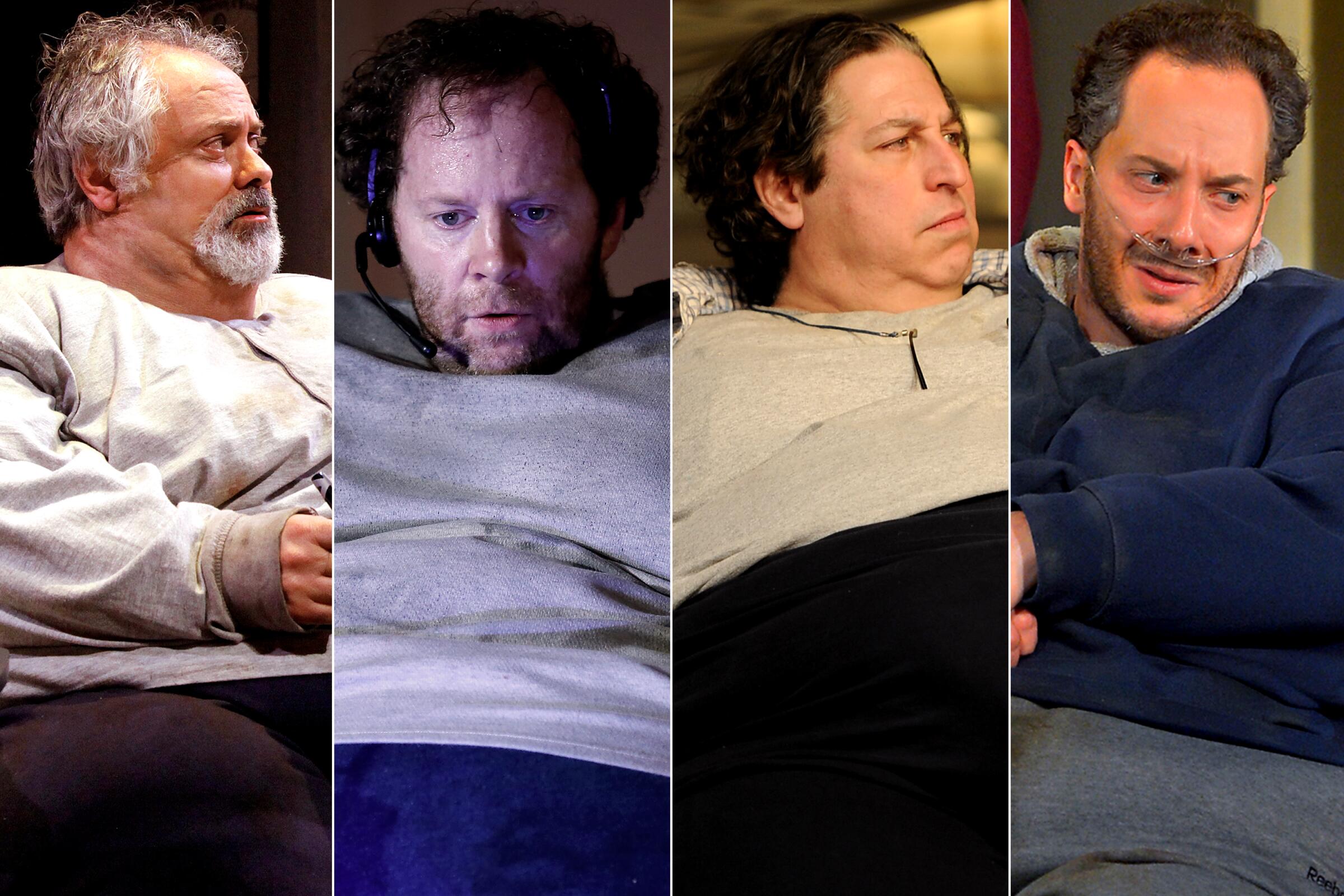
- Show more sharing options
- Copy Link URL Copied!
The following contains spoilers from the movie “The Whale,” now playing in theaters.
The movie version of “The Whale” ends with a breath, a bright light and a beach. The last visual shows the sun shining, the tide rising and falling, and a younger, slimmer version of the lead character, Charlie, staring out into the ocean as his daughter plays in the sand behind him.
If the serene seaside scene confused you, you’re not alone: That final flashback was a surprise to playwright and screenwriter Samuel D. Hunter, as director Darren Aronofsky tacked it on without discussing it with him. But the ending’s overall effect echoes the final moment of its source material, which actors and directors who’ve staged the popular play consider to be a release that, when performed, feels communal and generally satisfying for the audience in the room.
“The way it’s structured, this play is designed to slowly and repeatedly turn up the pressure until it almost can’t be tolerated,” said Davis McCallum, who directed a 2012 off-Broadway staging at Playwrights Horizons. “And then it has this really cathartic release at the end of the piece — a blackout, a sound effect, and a moment where the audience just lived in that silent darkness together.”
Both the play and the movie “The Whale” center on Charlie (Brendan Fraser), a reclusive, morbidly obese instructor of online writing classes who has been eating himself to death since the passing of his lover, a casualty of religious homophobia.
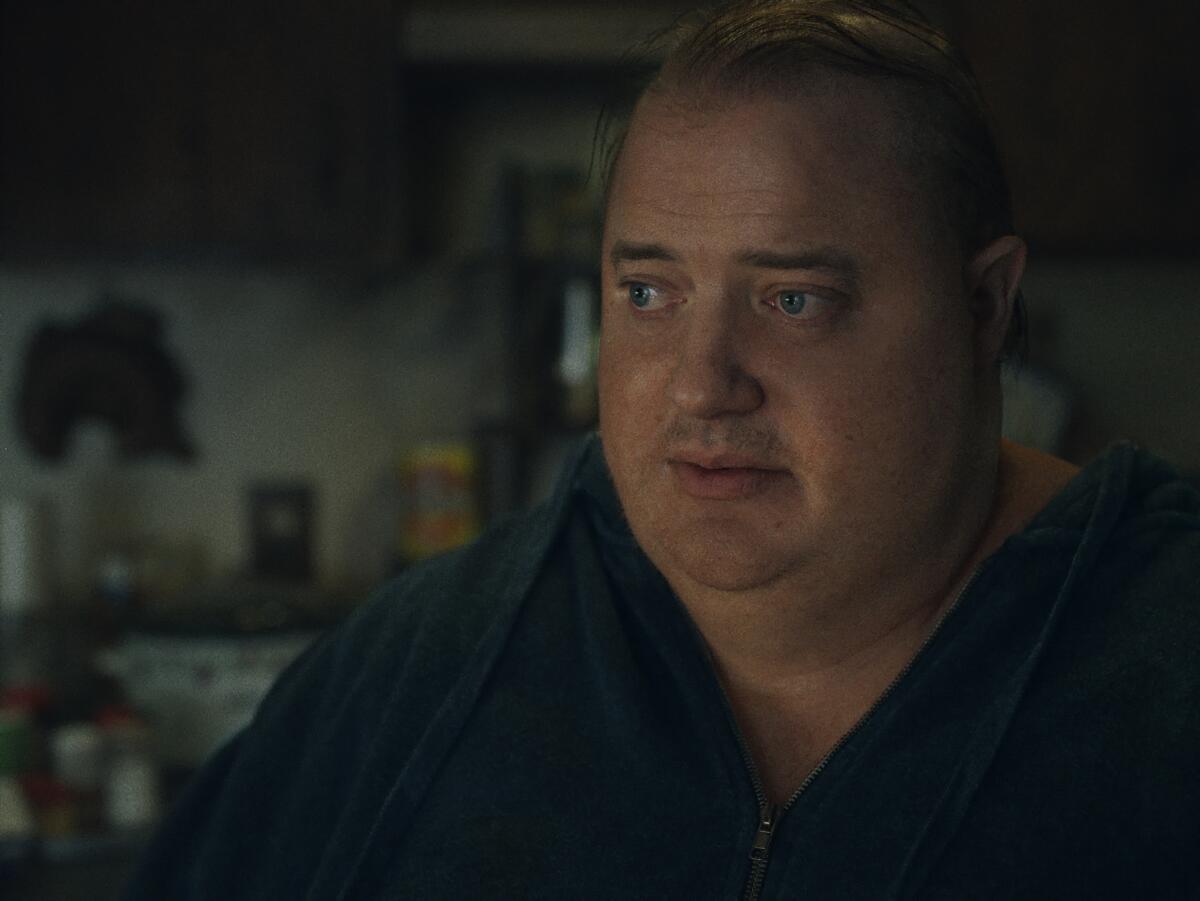
Review: Does Brendan Fraser give a great performance in ‘The Whale’? It’s complicated.
Darren Aronofsky’s intimate chamber drama, adapted by Samuel D. Hunter from his own play, navigates a tricky line between empathy and exploitation.
Dec. 8, 2022
The character is an amalgamation of Hunter’s past lives: as a closeted gay kid attending a fundamentalist Christian school in rural Idaho, a depressed adult who silently self-medicated with food, and an expository writing instructor for college freshmen (the piece’s heartbreakingly honest line “I think I need to accept that my life isn’t going to be very exciting” is an actual submission from one of Hunter’s students).
Throughout “The Whale,” Charlie is visited by his estranged and troubled daughter, Ellie (Sadie Sink) , and his frustrated ex-wife, Mary (Samantha Morton), both of whom Charlie abandoned when he ended his marriage and came out as gay; Liz (Hong Chau) , a conflicted caregiver who is also the sibling of Charlie’s late lover; and Thomas (Ty Simpkins), a fundamentalist missionary who is far from home. Hunter doesn’t shy away from any of the issues the characters are dealing with “but doesn’t bury you in [them] either,” said Martin Benson, who directed a 2013 staging at South Coast Repertory. “He’s not advocating anything, he’s just writing what he believes is true.”
These characters and their concerns are similar to those in Hunter’s other plays, which tackle subjects “fundamental to Greek tragedy: the limitation of humanity’s vision, the place of religion in society and the desperate longing for relief from the lonely uncertainty of life,” wrote Times critic Charles McNulty when Hunter received the MacArthur “genius” grant in 2014. “He proceeds not with a moral point but through observation of the way his characters either defend their bunkered existences or attempt to reach beyond them — or more commonly, some combination of the two.”
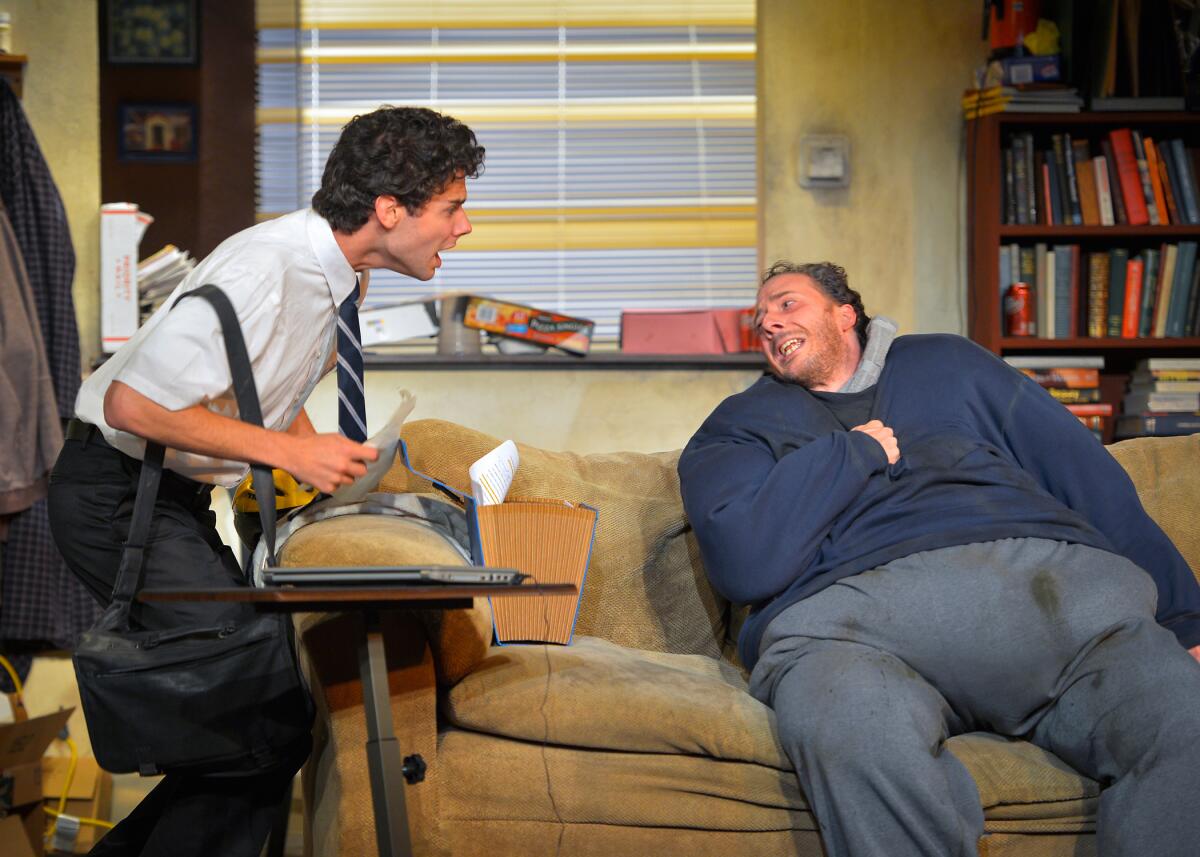
Throughout the intimate live piece — which is staged without the escape of an intermission — all five characters reveal truths to each other and the audience that raise the stakes of their potential bonds.
“These deeply flawed characters actually care about each other so much, but there are so many obstacles for them to express that love or connect with one another in real ways, however desperately or destructively,” said Joanie Schultz, who directed a 2013 production at Chicago’s Victory Gardens Theater. “So when some of them finally do, it’s gorgeous and almost magical.”
Numerous stagings of “The Whale” accentuate the pressure-cooker effect by designing Charlie’s living room, where the entirety of the play unfolds, with an extra sense of claustrophobia or isolation. For example, the 2014 Bay Area run raised the Marin Theatre Company stage by four feet and angled Charlie’s ceiling so that, from the audience’s perspective, the character appeared to “dominate the space in a way that intimidated the people who visited him,” said director Jasson Minadakis.
Likewise, the off-Broadway version strategically lit the space “so that it felt as if his room were hovering in this dark void,” said director McCallum; the Chicago staging positioned the proscenium “like an island in the sea, which was really effective because they’re all alone on their own islands in some ways, with all these barriers to connection,” said director Schultz.
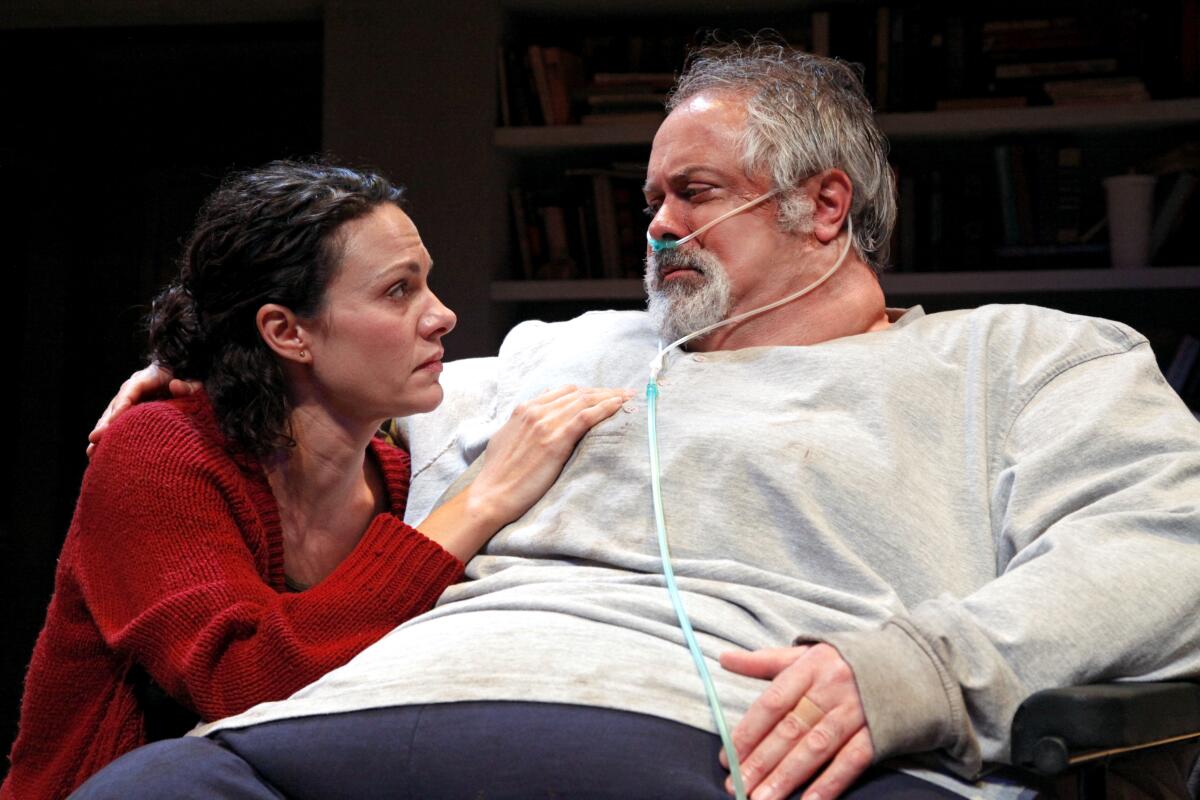
Darren Aronofsky on ‘The Whale,’ fatphobia and empathy
Director Darren Aronofsky dives deep on “The Whale,” fatphobia, human connection and how he feels about Brendan Fraser and Sadie Sink.
Dec. 13, 2022
Within these confined spaces, the actors who played Charlie — each wearing body suits weighing anywhere from 30 to 100 pounds — charted his arc physically and emotionally. As he attempts to nudge daughter Ellie toward a place of authentic self-expression, he too reveals himself to his students. The intention is that, by the time Charlie shares that he’s giving his life savings to Ellie, and endures great pain to stand up and walk toward her as she reads her “Moby-Dick” essay aloud to him, the audience would feel the overwhelming fulfillment Charlie gets during his final breath in the play.
“Every night, it was a journey, and it wasn’t easy to watch or to perform,” recalled Tom Alan Robbins, who starred in the 2012 world premiere in Denver. “His goal is self-destructive, but you want the audience to understand what has driven him to do this, and that his redemption is in the relationship he tries to forge with his daughter. You want that last second to be a combination of incredible pain and incredible triumph because, however briefly it is that they connect, it’s still an achievement for him.”
“Ellie says terrible, devastating things to Charlie throughout the whole thing, but he loves her so much that it doesn’t even hurt him,” said Matthew Arkin, who played Charlie at South Coast Repertory. “So in that final moment, whatever flaws he had, whatever mistakes he made and in whatever ways he couldn’t love himself enough, he lived a life redeemed, because he gave everything to save his daughter.”
Whether Charlie dies at the end of “The Whale” is up for debate. As written in Hunter’s script, the stage directions of that breath simply read, “A sharp intake of breath. The lights snap to black.” Many theater makers say that breath could very well be his last inhale, after which he is finally freed from the pains of his body, his loneliness, his grief. “The love and connection that Charlie gives Ellie is a gift, and hopefully she will remain true to her voice and herself in a way that he gave up on,” said Hal Brooks, who directed the Denver premiere.
It also could be considered in a metaphorical way, mimicking “how whales immerse themselves for so long underwater and then they finally come up to the surface,” said Schultz, or “a deep intake of breath before diving in somewhere they’ve never gone before,” said Shuler Hensley, who played Charlie in the New York run as well as a London staging in 2018. “It’s a brilliant ending, because audience members have constantly told me they couldn’t breathe afterwards. They didn’t know what to do, whether to applaud or get up or move because they’ve become so connected to Charlie.”

When asked about the ending, Hunter didn’t clarify Charlie’s status because, he said, it’s not necessarily relevant. “The final moments of this play and this movie abandon realism a little bit, and it’s no longer about this guy in this apartment,” he explained. “What matters is that he’s connected with Ellie, he’s done the thing that he’s been trying to do throughout this entire play, and that connection feels real and genuine. There’s this apotheosis that happens, and in the film, Charlie literally ascends off the ground.”
Though Hunter didn’t write the beach scene that follows Charlie’s onscreen ascension, he called it “marvelous” and shared an interpretation of what it might mean: “If it’s a flashback to the last time Charlie went swimming in the ocean, close to when the family fell apart, what I see in that shot is a man staring down the abyss of self-actualization, contemplating the decision he has to make about the different avenues he can take.
“Maybe he was thinking about what would happen if he stayed in that marriage: Ellie would have grown up with a closeted father, [his lover] Alan would have been miserable and, as Liz points out, would have probably died way before he did when he was with Charlie,” Hunter continued. “Choosing to stay or leave, both paths are complicated and tragic in their own ways, but ultimately, I think Charlie took the more hopeful route, and chose to look for the salvation one can find through human connection.”
Only good movies
Get the Indie Focus newsletter, Mark Olsen's weekly guide to the world of cinema.
You may occasionally receive promotional content from the Los Angeles Times.

Ashley Lee is a staff reporter at the Los Angeles Times, where she writes about theater, movies, television and the bustling intersection of the stage and the screen. An alum of the Eugene O’Neill Theater Center’s National Critics Institute and Poynter’s Power of Diverse Voices, she leads workshops on arts journalism at the Kennedy Center American College Theater Festival. She was previously a New York-based editor at the Hollywood Reporter and has written for the Washington Post, Backstage and American Theatre, among others. She is currently working remotely alongside her dog, Oliver.
More From the Los Angeles Times

UCLA chancellor faces growing faculty criticism, no-confidence vote, after weeks of turmoil
May 11, 2024

Company Town
Shari Redstone was poised to make Paramount a Hollywood comeback story. What happened?

Science & Medicine
Do zinc products really help shorten a cold? It’s hard to say
May 10, 2024

GardaWorld heist: The reason $30 million was in a Sylmar warehouse and not a bank
May 9, 2024
- International edition
- Australia edition
- Europe edition

Albert and the Whale by Philip Hoare review – his greatest work yet
The gifted writer summons the eclectic travels of Albrecht Dürer with captivating passion, poignancy, pure wonder and a personal twist
A lbrecht Dürer was the first great sightseer in the history of art, travelling Europe to see conjoined twins, Aztec gold, Venetian gondolas and the bones of an 18ft giant. He crossed the Alps more than once and voyaged for six days in the freezing winter of 1520 to see a whale on a beach in Zeeland. The ship was nearly wrecked, but somehow Dürer saved the day and they eventually reached the shore. The sands were empty. The great creature had sailed away.
This magnificent new book by Philip Hoare takes its title from that tale, but only as a point of departure. The narrative soon turns into a trip of another kind entirely, a captivating journey through art and life, nature and human nature, biography and personal memoir. Giants walk the earth: Dürer and Martin Luther, Shakespeare and Blake, Thomas Mann, Marianne Moore, WH Auden, David Bowie. Hoare summons them like Prospero, his writing the animating magic that brings the people of the past directly into our present and unleashes spectacular visions along the way.
Just to follow him to that same beach in Zeeland, for instance, is to be entranced by his descriptions of deserted ports, windblown flatlands and shadowy waters. Hoare sees the creatures Dürer never saw, as if on his behalf. He offers the poignant revelation that the giant’s bones were actually those of a bowhead whale, knowing what it would have meant to the artist. Shown the day’s catch in a local restaurant, he marvels at the orange spots on the glistening brown plaice – “the fingerprints of a saint” – and imagines Dürer immediately drawing the fish on his napkin. Both men are present in that moment; both of Hoare’s pictures are perfect.
Anyone familiar with his sea trilogy, starting with the prize-winning Leviathan in 2008, will know the liquid beauty of Hoare’s prose and his apparently limitless gift for witness and insight. He is as powerfully struck by the wonders of this world as Dürer. Each chapter, no matter how wide its flow, is anchored in a particular image by Dürer – the hare, the patient greyhound, the astounding self-portraits – and it is extraordinary to see them anew through Hoare’s eyes.
Of Melenc olia I – the angel with a face like thunder among a clutter of symbols – he notices the avian wing structure, the telling male-female ambiguity and even the hint of a smile. But he also spies a fraction of faraway sea. “It’s one of those still misty nights when the sea opens up like an invitation,” he writes, exactly catching the enigmatic half-light. “You can’t sleep but you can’t stay awake.”

Peering into the print with an eyeglass, Hoare hopes to see a whale. But the creature has gone, if it was ever there. In another of the book’s lingering sonar echoes, he comes across an old picture of a Dutch beach, unexceptional until the over-painting is cleaned: whereupon a whale is revealed on the shore.
Hoare’s feeling for Dürer exceeds anything I have ever read. The 1498 self-portrait, seated in op-art stripes by a window, is a “stranger on a train”. The bristling walrus, with his “piton tusks”, has “a woozy droog stare”. Dürer’s use of gold leaf in the homage to a blue roller bird , hung upon a nail, “lends the bird a semblance of living glory”. Dürer’s humble crucifixion calls forth Hoare’s corresponding compassion. “All the pity of the world lies in that claw.”
Hoare’s own right hand becomes a claw as the fingers start to retract. No self-pity; instead, an exhilarating digression on the Paris surgeon who first identified the condition. And the long operation Hoare endures only sharpens his insight. Look again at Durer’s depictions of his own fingers – pointing out the great world, drawing its micro-macro miracles – and you will see them in a profoundly altered light.
Hoare’s Dürer is a Columbus, a Copernicus, opening up this wide world. He is a night bird, an Aztec, a starman. What he meant to Marianne Moore – newness in oldness – and to Thomas Mann, in his fiction as in his flight from Nazi Germany, yield two chapters so enthralling they might stand as definitive biographies in themselves. But most affecting is the way that Dürer’s life permits Hoare to recall passages of his own.
Dürer was a writer himself, of course, annotating his drawings with long autobiographical inscriptions. A devastating account of his mother’s death is written upon her final portrait. Hoare is too modest to intrude here, but later writes an elegy to his own mother, Marion Moore; two stricken sons commemorating the women who gave them life.
Reading this book like a person mesmerised by cosmic events in the sky, I scarcely understood the significance of the opening encounter between the author and a capuchin monkey. Its meaning only becomes fully apparent towards the end, deepening the narrative immeasurably. The revelation must stay inside Albert and the Whale , which is his greatest work yet. But it is further testimony to Hoare’s exceptional empathy for both man and beast, for seeing through the eyes of a primate, a greyhound or an artist.
Albert and the Whale by Philip Hoare is published by Fourth Estate (£16.99). To order a copy go to guardianbookshop.com . Delivery charges may apply
- Philip Hoare
- Observer book of the week
- Art and design books
- Autobiography and memoir
- Biography books
Comments (…)
Most viewed.
- Craft and Criticism
- Fiction and Poetry
- News and Culture
- Lit Hub Radio
- Reading Lists

- Literary Criticism
- Craft and Advice
- In Conversation
- On Translation
- Short Story
- From the Novel
- Bookstores and Libraries
- Film and TV
- Art and Photography
- Freeman’s
- The Virtual Book Channel
- Behind the Mic
- Beyond the Page
- The Cosmic Library
- The Critic and Her Publics
- Emergence Magazine
- Fiction/Non/Fiction
- First Draft: A Dialogue on Writing
- The History of Literature
- I’m a Writer But
- Lit Century
- Tor Presents: Voyage Into Genre
- Windham-Campbell Prizes Podcast
- Write-minded
- The Best of the Decade
- Best Reviewed Books
- BookMarks Daily Giveaway
- The Daily Thrill
- CrimeReads Daily Giveaway
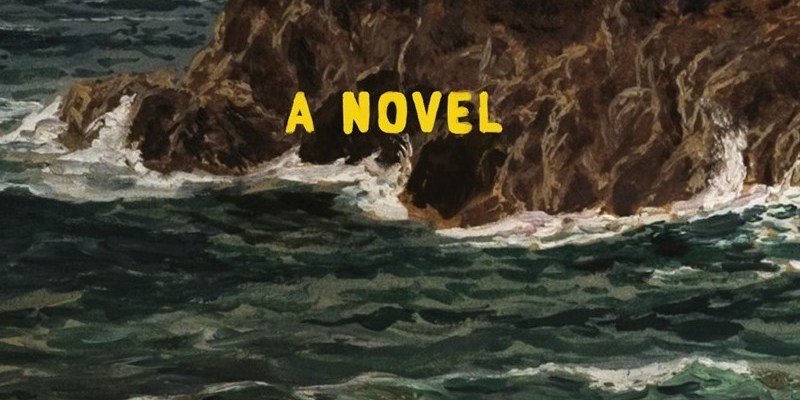
5 Book Reviews You Need to Read This Week
“can a novel be both blunt and exquisite”.

Our feast of fabulous reviews this week includes Sam Sacks on Colm Tóibín’s Long Island , Maggie Shipstead on Elizabeth O’Connor’s Whale Fall , Lara Feigel on Maggie Nelson’s Like Love , Jennifer Wilson on This Strange Eventful History , and Lauren LeBlanc on Kaliane Bradley’s The Ministry of Time .
Brought to you by Book Marks , Lit Hub’s home for book reviews.
“The plot may sound like the stuff of soap operas, but Mr. Tóibín is essentially a dramatist of repression. Exposing their feelings, openly acting on their desires, committing their hearts in one direction or another—such decisions are torments to this author’s characters and only come about awkwardly, when their longings or hurts overwhelm them. Irish Enniscorthy, much like Italian Lindenhurst, is an insular, gossipy place where every secret is eventually known by all yet might never be spoken out loud. The exceptionally acute feeling of suspense in Long Island comes not just from waiting to see what will become of Jim, Eilis and Nancy, but from the characters’ struggle to finally express themselves, despite the pain or regret it might bring them. It’s a tricky thing, producing a novel from a style this muted and undemonstrative …
Yet the writing perfectly suits Brooklyn and Long Island , helping to capture the decency and ordinariness of the characters as well as the deep emotional ruptures that drive them toward disorder. The confrontations between these people, so long delayed, feel momentous and hugely affecting. These pendant novels, I think, will be the fiction for which this wonderful writer is best remembered.”
–Sam Sacks on Colm Tóibín’s Long Island ( The Wall Street Journal )
“Can a novel be both blunt and exquisite? I’m not sure I would have known how to imagine such a work before reading Whale Fall , Elizabeth O’Connor’s excellent debut. Brief but complete, the book is an example of precisely observed writing that makes a character’s specific existence glimmer with verisimilitude … the novel does an exceptional job of getting at the tension between the big picture and the small one. To different eyes, the same island might look like a prison or a romantic enclave, but to actually apprehend the truth of a place or person requires patience, nuanced attention and the painstaking accrual of details. Understanding is hard work, O’Connor suggests, especially when we must release our preconceptions. While the researchers fail to grasp this, Manod does not, and her reward by book’s end, painfully earned, is a new and thrilling resolve.”
–Maggie Shipstead on Elizabeth O’Connor’s Whale Fall ( The New York Times Book Review )
“A decade after The Argonauts became the bible of English graduates everywhere, the essays in Like Love arrive to help us understand Nelson’s place in a culture where, to her half-delight, she has become such a powerful voice. Spanning two decades, they range from appreciations of influences including Prince and Judith Butler, to wild, freefalling conversations with figures such as Björk, Wayne Koestenbaum and Jacqueline Rose. There is a passionate, wondering account of her formative half-erotic friendship with the singer Lhasa de Sela. The writing isn’t consistent, any more than her books are. But I like to take my thinkers and writers whole, as she does. The essays offer a kind of composite self-portrait, and illustrate how she thinks, sometimes painstakingly, sometimes with casual jubilance, about some of the central dilemmas of our time …
Because Nelson likes writing about her friends, there’s a kind of homogeneity to much of the book that cumulatively left me feeling a little claustrophobic, longing especially for the roominess of time travel…Which is not to say that she’s wrong to write about the people in her circle. The brutality of the present moment may require us precisely to batten down the hatches and commit to extreme solidarity. At a time when institutional life is collapsing, when the pandemic privileged family over friends, when work expands in ways that leave many too exhausted to socialize, Nelson demonstrates what it means to dedicate yourself to a cohort with seriousness and strenuousness … Like Love may be one of the most movingly specific, the most lovingly unruly celebrations of the ethics of friendship we have.”
–Lara Feigel on Maggie Nelson’s Like Love ( The Guardian )
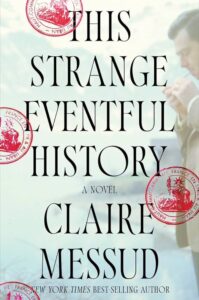
“Messud lets the messiness of reality overflow the neatness of fiction, as if in defiance of this tendency. The novel brims with details, many likely gleaned from a fifteen-hundred-page family history, titled Everything That We Believed In , that her paternal grandfather left behind. Messud has used that document to craft something more interesting than a historical novel: a novel about history and the stories we tell ourselves about the role we play in it …
Some readers will bristle at This Strange Eventful History and the pains it takes to account for the lost sense of belonging felt by the pieds noirs , who treated Algerians like strangers in their own land. One could accuse Messud of treating her family’s history like a family heirloom, which is to say, over-delicately. Messud is fond of quoting a piece of advice from the Russian writer Anton Chekhov. In 2020, she summarized it for the Web site Literary Hub, saying, ‘It’s not my job to tell you that horse thieves are bad people, it’s my job to tell you what this horse thief is like.’ Messud risks the accusations above to do her work well.
In This Strange Eventful History , she unswervingly tells us what the pieds noirs are like—a people too homeless to feel responsible for squatting, too poor to see themselves as colonizers, too in love with their conquest to sense anything wrong with the liaison. The Cassars cling to an idealized memory of Algeria that’s untroubled by reality, the tree of knowledge unshaken, the apple still intact, but Messud trusts her readers to bite down.”
–Jennifer Wilson on This Strange Eventful History ( The New Yorker )
“Of late, many critically acclaimed books embrace mystery and absurdity in a way that both suspends and expands conventionally held notions of time…Their playfulness reveals possibilities and perspectives that might be lost in a novel bound by fact-checked 21st century reality. After all, in a world where nothing feels normal, fiction that embraces a disregard for physics and convention mirrors our new upside-down quotidian lifeTo this end, Kaliane Bradley proves that it’s possible to address imperialism, the scourge of bureaucracy, cross-cultural conflict and the paranoia inherent in a surveillance state through her utterly entertaining novel …
As the story’s momentum builds into that of a spy thriller, Bradley pulls off a rare feat. The Ministry of Time is a novel that doesn’t stoop to easy answers and doesn’t devolve into polemic. It’s a smart, gripping work that’s also a feast for the senses. An assassination, moles, questions of identity and violence wreak havoc on our happy lovers and the bubble they create in London. Yet our affection for them is as fresh and thrilling as theirs is for one another, two explorers of a kind, caught in a brilliant discovery. Bradley’s written an edgy, playful and provocative book that’s likely to be the most thought-provoking romance novel of the summer.”
–Lauren LeBlanc on Kaliane Bradley’s The Ministry of Time ( The Los Angeles Times )
- Share on Facebook (Opens in new window)
- Click to share on Twitter (Opens in new window)
- Click to share on Google+ (Opens in new window)
- Click to share on LinkedIn (Opens in new window)
- Click to share on Reddit (Opens in new window)
- Click to share on Tumblr (Opens in new window)
- Click to share on Pinterest (Opens in new window)
- Click to share on Pocket (Opens in new window)

Previous Article
Next article, support lit hub..

Join our community of readers.
to the Lithub Daily
Popular posts.
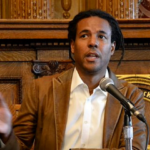
Follow us on Twitter

How the Beloved Memory of Dead Pets Can Help Guide the Writing Process
- RSS - Posts
Literary Hub
Created by Grove Atlantic and Electric Literature
Sign Up For Our Newsletters
How to Pitch Lit Hub
Advertisers: Contact Us
Privacy Policy
Support Lit Hub - Become A Member
Become a Lit Hub Supporting Member : Because Books Matter
For the past decade, Literary Hub has brought you the best of the book world for free—no paywall. But our future relies on you. In return for a donation, you’ll get an ad-free reading experience , exclusive editors’ picks, book giveaways, and our coveted Joan Didion Lit Hub tote bag . Most importantly, you’ll keep independent book coverage alive and thriving on the internet.

Become a member for as low as $5/month

Whalefall Movie: What We Know So Far About The Upcoming Book Adaptation
W hen movie lovers think of the most intense thrillers set at sea, the best shark movies — such as Steven Spielberg’s Jaws or the fact-based horror movie , Open Water — might come to mind. However, admirers of classic literature might have a softer spot for stories in which a human protagonist comes into conflict with an even grander beast: the whale. You may have likely heard of the biblical story of Jonah or author Herman Melville’s epic, influential 1851 book, Moby-Dick , but are you familiar with a more recent novel called Whalefall ?
If not, you surely will soon, because the 2023 book has been optioned for a movie that is currently in the works at Disney’s 20th Century Studios. So, exactly what sort of conflict does the human protagonist of this story face when he encounters the large mammal, and who is bringing this story to life for the big screen? We shall reveal that and other important details in our following guide to everything that we know so far about the upcoming film, Whalefall .
What Is The Whalefall Release Date?
For the time being, there has been no confirmed release date for Whalefall yet. The film has only just recently gone into development, as reported in an exclusive article run by Deadline in March 2024.
Thus, it could be a considerably lengthy wait — but, hopefully, not a whale-sized wait — before we even get an announcement of when the film is set to hit theaters. However, anyone who is familiar with the story behind this upcoming film should have no issue keeping their anticipation afloat.
Based On A Bestselling Thriller Novel By Daniel Kraus
Inspired by the aforementioned book of the same name, Whalefall (according to Simon & Schuster ’s official description) tells the story of Jay Gardiner — a scuba diver on a personal mission to retrieve the remains of his father, who took his own life just a year earlier, in the depths of the Pacific Ocean. Unfortunately, his search is interrupted when he comes across a fight between a giant squid and a sperm whale and, amid the commotion, he finds himself trapped inside the 80-foot, sixty-ton whale’s stomach. Running low on oxygen, Gardiner struggles to escape his gargantuan captor and defeat his own inner demons before it is too late.
Published by MTV Books (a division of Simon & Schuster), the acclaimed bestseller — which Gone Girl author Gillian Flynn called “astonishingly great” — comes from the mind of author Daniel Kraus. He made his debut as a writer in 2009 with The Monster Variations — the first of more coming-of-age horror stories, such as Scowler — and would eventually dabble in writing comic books of a scary variety, such as the apocalyptic Year Zero and a special holiday-themed one shot inspired by the classic horror anthology movie , Creepshow , from 2023. Kraus also has his name on a few literary series, including the two-part The Death and Life of Zebulon Finch and The Teddies Saga .
Brian Duffield Is Directing Whalefall
At the helm of Whalefall is someone who has experience telling stories about young loners quarreling with fearsome creatures and their own dark pasts. Brian Duffield — the mastermind behind one of the best horror movies on Hulu , 2023’s No One Will Save You — personally announced he was directing the film with a post to his Instagram account.
Before writing and directing the masterfully unique alien invasion movie , Duffield made his directorial debut with another, comparatively lighter novel adaptation: the romantic, coming-of-age fantasy comedy, Spontaneous , from 2020. Prior to, he was known primarily as a writer of other horror-comedy movies like The Babysitter or Love and Monsters and even more earnest thrillers like 2020’s Underwater and the Natalie Portman-led Western, Jane Got a Gun, from 2015. He is also the developer of Netflix’s animated King Kong spin-off series, Skull Island .
Duffield And Kraus Are Writing The Film Together
Daniel Kraus also took to Instagram to share that he is involved in the development of his own novel’s adaptation as he is collaborating with Duffield on the script for Whalefall . This marks the first time the author’s has been so heavily involved in a screen adaptation of his own work, but not his first collaboration with a noted horror filmmaker.
He was also an associate producer on the Best Picture Oscar winner , The Shape of Water , for which he collaborated on the novelization with Guillermo del Toro. Later, he and the Academy Award winner co-authored the book Trollhunters , which became a Netflix original animated series. Kraus also had the honor of completing The Living Dead — a novel that was started by modern zombie movies inventor George A. Romero before his passing.
Ron Howard And Brian Grazer Produce
At the moment, the most recognizable names attached to Whalefall are actually the producers: Academy Award-winning duo Ron Howard and Brian Grazer. According a report by Deadline , the long-time producing partners’ company, Imagine Entertainment, had previously bought the rights to adapt Kraus’ novel before 20th Century Studios won the bid for the theatrical distribution rights.
Curiously enough, this will not be the first time that Howard and Grazer have worked on a movie about a whale as Howard directed 2015’s In the Heart of the Sea , which was based on the true event that inspired Moby-Dick . Additionally, it is not their first time collaborating on an intense story of survival, as one of Ron Howard’s best movies (which Grazer also produced) is the 1995 space movie classic , Apollo 13 .
With the talent involved in Whalefall , this thriller could end up being a whale of a hit. Be sure to check back for more updates on the development of this upcoming adventure.
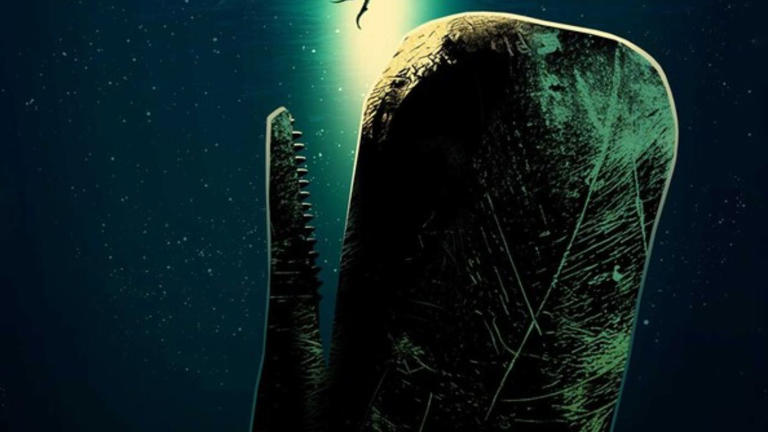

COMMENTS
Brendan Fraser as Charlie in "The Whale," Darren Aronofsky's film adaptation of the play by Samuel D. Hunter. ... He joined The Times in 2000 and has written for the Book Review and The New ...
The Whale: A Love Story by Mark Beauregard. reviewed by Erik Hage. Of all of the notable literary friendships, the bond between Herman Melville and Nathaniel Hawthorne seems among the most fascinating—largely because of Melville's emotionally charged letters to the older writer, and also because the relationship became a crucible for the composition of Moby-Dick.
At least to the human eye, a sperm whale is a profoundly weird-looking animal, and Hoare makes the weirdness seem somehow familiar. The pale interior of the whale's mouth "glows like a half ...
'Whale's magical realism provides an entertaining element, imbuing hidden meaning in even the simplest turns of events. It's worth noting that the novel includes some themes of a distressing nature, but is a unique and ambitious satirical adventure: definitely one for the curious reader.' Patrick McShane, Asian Review of Books
In the latest retelling, officially titled "Guillermo del Toro's Pinocchio," the tone of choice is pathos. We first meet Geppetto as he mourns a real boy: his son, Carlo, whom he cherished ...
4.08. 733 ratings131 reviews. On the outskirts of Mormon Country, Idaho, a six hundred pound recluse hides away in his apartment eating himself to death. Desperate to reconnect with his long-estranged daughter, he reaches out to her, only to find a viciously sharp-tongued and wildly unhappy teen. Big-hearted and fiercely funny, The Whale tells ...
Simply sign up to the Film myFT Digest -- delivered directly to your inbox. Body horror takes a new form in Darren Aronofsky's The Whale, which chronicles the long, slow suicide of a morbidly ...
The Whale. "The Whale" is an abhorrent film, but it also features excellent performances. It gawks at the grotesquerie of its central figure beneath the guise of sentimentality, but it also offers sharp exchanges between its characters that ring with bracing honesty. It's the kind of film you should probably see if only to have an informed ...
The Oscar-nominated star plays a chronically obese man in Darren Aronofsky's clammy, uncomfortable but ultimately redeeming movie
The Whale is a 2022 American drama film directed by Darren Aronofsky and written by Samuel D. Hunter, based on his 2012 play of the same name.The film stars Brendan Fraser, Sadie Sink, Hong Chau, Ty Simpkins, and Samantha Morton.The plot follows a reclusive, morbidly obese instructor of the English language who tries to restore his relationship with his teenage daughter, whom he had abandoned ...
Release date: Friday, Dec. 9. Cast: Brendan Fraser, Sadie Sink, Ty Simpkins, Hong Chau, Samantha Morton, Sathya Sridharan. Director: Darren Aronofsky. Screenwriter: Samuel D. Hunter, based on his ...
The Whale review: Brendan Fraser shines in a overwrought, underbaked drama ... Leah Greenblatt is the critic at large at Entertainment Weekly, covering movies, music, books, and theater. She is a ...
The Whale chronicles the fervent love affair that grows out of that serendipitous afternoon. Already in debt, Melville recklessly borrows money to purchase a local farm in order to remain near Hawthorne, his newfound muse. The two develop a deep connection marked by tensions and estrangements, and feelings both shared and suppressed.
Chang is the author of the book "FilmCraft: Editing" and serves as chair of the National Society of Film Critics and secretary of the Los Angeles Film Critics Assn. More From the Los Angeles Times
The 60-foot-long, seven-foot-tall creature that appears in Joanna Quinn's first novel, "The Whalebone Theatre," is, alas, D.O.A., found beached on the coast of Dorset, England, by a 12-year ...
The Whale is being recognized for Brendan Fraser's tremendous performance. And the actor, whose career was paused for a long while, deserves the accolades he is receiving for his turn as Charlie. Director Darren Aronofsky's latest feature, from a screenplay by Samuel D. Hunter, is powerful because of Fraser's central performance.It's the key to the movie's success.
The best recent translated fiction - review roundup. Whale by Cheon Myeong-Kwan; The Short End of the Sonnenallee by Thomas Brussig; Of Cattle and Men by Ana Paula Maia; Ada's Realm by Sharon ...
The following contains spoilers from the movie "The Whale," now playing in theaters. The movie version of "The Whale" ends with a breath, a bright light and a beach. The last visual shows ...
9 books67 followers. Follow. Cheon Myeong-kwan is a South Korean novelist, screenwriter and director whose work has been translated into eight languages. Upon publication of the author's first story, Frank and I (2003), he received the prestigious Munhakdongne New Writer Award. Cheon's debut novel, Whale, was published the following year.
A snail longs to see the world and hitches a lift on a whale's tail. Together they go on an amazing journey, past icebergs and volcanoes, sharks and penguins, and the snail feels very small in the vastness of the world. But when the whale is beached in a bay, it's the tiny snail who saves the day. 32 pages, Paperback.
T he title sounds like a metaphor, but there really is a theatre made of a whale's ribcage in this sweeping historical epic. It stands on a grassy headland on the Dorset coast, draped in scenery ...
The Whale review - Darren Aronofsky's latest is a contrived disappointment. It's hard to feel much sympathy for Brendan Fraser's morbidly obese English teacher in this much anticipated but ...
About the author. Cheon Myeong-kwan is a South Korean novelist, screenwriter and director whose work has been translated into eight languages. Upon publication of the author's first story, Frank and I (2003), he received the prestigious Munhakdongne New Writer Award. Cheon's debut novel, Whale, was published the following year.It won the 10th Munhakdongne Novel Award and has become one of ...
The great creature had sailed away. This magnificent new book by Philip Hoare takes its title from that tale, but only as a point of departure. The narrative soon turns into a trip of another kind ...
By Book Marks. May 9, 2024. Our feast of fabulous reviews this week includes Sam Sacks on Colm Tóibín's Long Island, Maggie Shipstead on Elizabeth O'Connor's Whale Fall, Lara Feigel on Maggie Nelson's Like Love, Jennifer Wilson on This Strange Eventful History, and Lauren LeBlanc on Kaliane Bradley's The Ministry of Time.
Unfortunately, his search is interrupted when he comes across a fight between a giant squid and a sperm whale and, amid the commotion, he finds himself trapped inside the 80-foot, sixty-ton whale ...
Witi Ihimaera. 3.84. 10,880 ratings1,243 reviews. Eight-year-old Kahu craves her great-grandfather's love and attention. But he's focused on his duties as chief of the Maori in Whangara, New Zealand—a tribe that claims descent from the legendary "whale rider." In every generation since the whale rider, a male has inherited the title of chief.